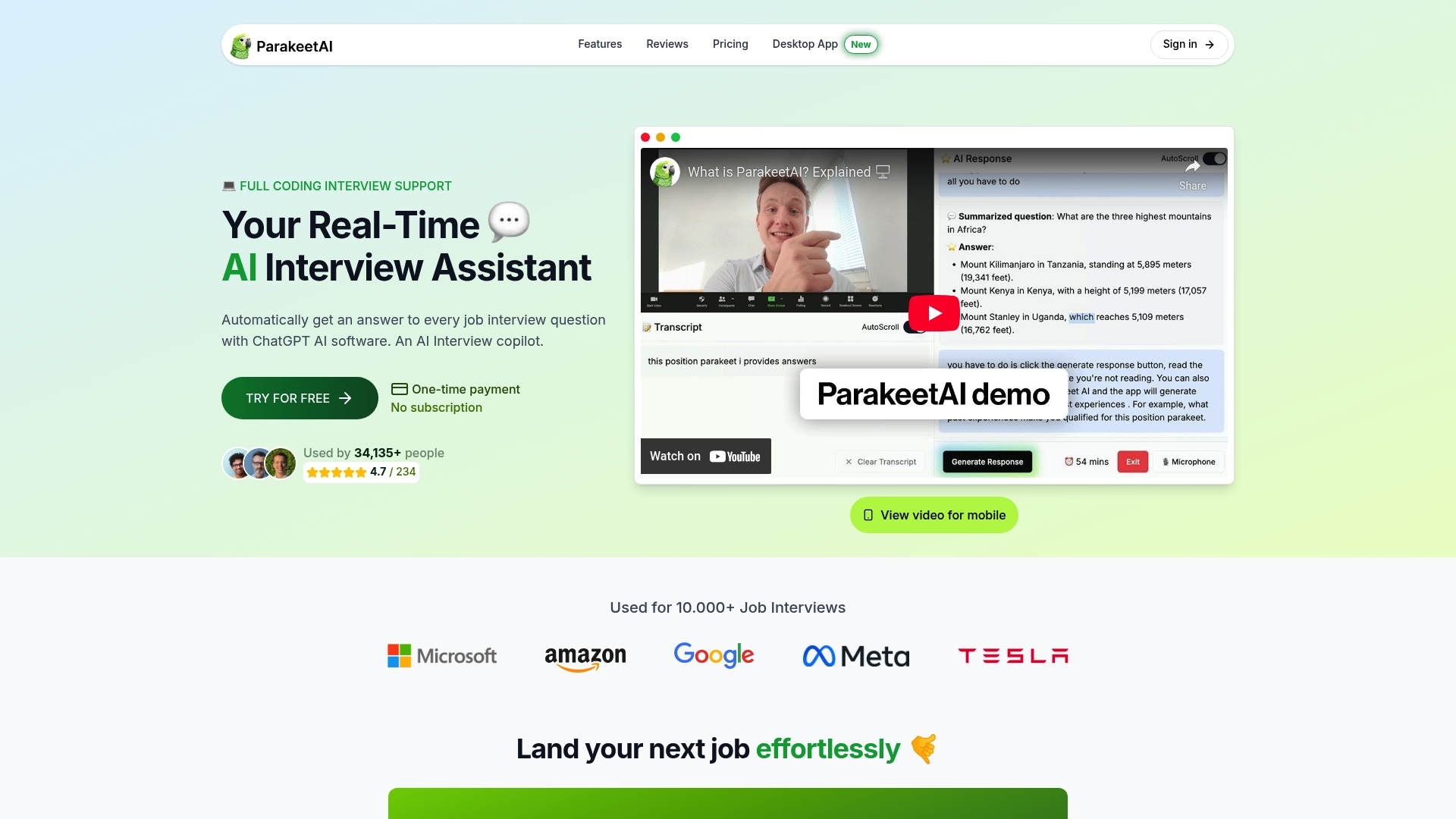Understanding AI in Hiring Process Explained

AI is changing the way companies find and hire people. But about 66 percent of Americans feel uneasy about AI making hiring decisions, which might surprise anyone who’s seen how quickly these systems scan resumes and recommend candidates. Here’s something even less expected though. The biggest impact of AI in hiring might not be who gets chosen, but how fair and transparent the whole process can actually become.
Table of Contents
- What Is Ai And Its Role In Hiring?
- Why Ai Matters In Recruitment Today
- How Ai Transforms The Hiring Process
- Key Concepts Behind Ai Algorithms In Hiring
- Ethical Considerations And Challenges In Ai Hiring
Quick Summary
| Takeaway | Explanation |
|---|---|
| AI enhances recruitment efficiency. | AI automates screening and assessments, significantly speeding up hiring processes compared to traditional methods. |
| Data-driven decisions reduce bias. | AI algorithms standardize evaluations, minimizing human biases that may occur in the selection process. |
| NLP improves candidate evaluation. | Natural Language Processing analyzes candidate interactions, revealing insights beyond simple resume reviews. |
| Transparency is crucial in AI hiring. | Organizations must ensure clear decision-making processes to maintain fairness and accountability in AI recruitment. |
| Collaborative approach needed for ethical AI. | Combining expertise from various fields helps manage ethical challenges and improves AI implementation in hiring. |
What is AI and Its Role in Hiring?
Artificial Intelligence (AI) in hiring represents a transformative technological approach that leverages sophisticated algorithms and machine learning to revolutionize recruitment processes. Unlike traditional hiring methods that rely solely on human judgment, AI introduces data-driven decision-making capabilities that can significantly enhance talent acquisition strategies.
Understanding AI’s Core Functions in Recruitment
AI hiring technologies perform multiple critical functions throughout the recruitment lifecycle. These advanced systems can automatically screen resumes, analyze candidate responses, evaluate video interviews, and predict potential job performance with remarkable precision. By processing vast amounts of data rapidly, AI tools help organizations identify top talent more efficiently than conventional screening methods.
Key capabilities of AI in hiring include:
- Automatic resume parsing and candidate ranking
- Sentiment and language analysis during interviews
- Predictive performance modeling based on candidate attributes
- Bias reduction through standardized evaluation criteria
Technological Mechanisms Behind AI Hiring Tools
The underlying mechanisms of AI hiring systems rely on complex machine learning algorithms that analyze patterns and extract meaningful insights from candidate data. These algorithms are trained on extensive historical hiring datasets, enabling them to recognize successful candidate profiles and predict potential job performance.
According to Pew Research Center, approximately 66% of Americans express reservations about AI’s role in hiring decisions, highlighting the ongoing debate surrounding technological intervention in human resource management. This statistic underscores the importance of transparent and ethical AI implementation in recruitment processes.
While AI offers unprecedented efficiency, it also introduces nuanced challenges related to algorithmic fairness, data privacy, and potential unintended biases. Organizations must carefully design and continuously monitor their AI hiring systems to ensure they complement human decision-making rather than completely replacing human intuition and judgment.
Why AI Matters in Recruitment Today
In the rapidly evolving landscape of talent acquisition, AI has emerged as a critical technological catalyst transforming traditional recruitment methodologies. Modern organizations recognize that AI is no longer a futuristic concept but a practical necessity for identifying and attracting top talent efficiently and strategically.
Strategic Efficiency in Talent Acquisition
AI dramatically accelerates recruitment processes by automating time-consuming tasks that historically consumed significant human resources.
Recruiters can now leverage intelligent systems to handle initial candidate screening, resume parsing, and preliminary assessments with unprecedented speed and accuracy. This technological intervention allows human resources professionals to focus on more nuanced aspects of talent evaluation that require emotional intelligence and strategic thinking.
Key strategic advantages of AI in recruitment include:

- Dramatically reduced time-to-hire metrics
- Enhanced candidate matching precision
- Consistent and objective candidate evaluation
- Minimized human bias in initial screening processes
Data-Driven Candidate Assessment
Traditional recruitment methods often rely on subjective assessments and limited data points. AI transforms this approach by introducing comprehensive, multi-dimensional candidate evaluation techniques. Machine learning algorithms can analyze extensive datasets, examining candidate backgrounds, skills, potential cultural fit, and predictive job performance indicators far beyond surface-level resume information.
According to Yale School of Management research, AI models can effectively analyze candidate interactions and predict potential job performance with remarkable accuracy, offering organizations a more sophisticated approach to talent selection.
While AI presents remarkable opportunities, organizations must approach its implementation thoughtfully. Successful AI integration requires robust technological infrastructure, continuous algorithm refinement, and a balanced approach that preserves human judgment alongside machine-driven insights. The future of recruitment lies not in replacing human decision-makers but in empowering them with intelligent, data-driven tools that enhance overall hiring effectiveness.
How AI Transforms the Hiring Process
Artificial Intelligence is fundamentally reshaping recruitment by introducing unprecedented levels of efficiency, objectivity, and sophisticated candidate evaluation techniques. The traditional hiring landscape characterized by manual screening and subjective assessments is rapidly evolving into a data-driven, intelligent ecosystem that prioritizes precision and comprehensive candidate understanding.
Intelligent Candidate Screening and Matching
AI technologies revolutionize initial recruitment stages by implementing advanced screening mechanisms that go far beyond traditional resume review. Machine learning algorithms can now parse complex candidate profiles, extracting nuanced insights about skills, experience, and potential cultural compatibility. These intelligent systems analyze multiple data points simultaneously, creating holistic candidate profiles that reveal capabilities not immediately apparent through conventional evaluation methods.

Key transformative capabilities include:
- Automatic skill and competency mapping
- Predictive performance potential assessment
- Real-time candidate profile enrichment
- Comprehensive background verification
Advanced Interview and Assessment Technologies
Modern AI recruitment tools incorporate sophisticated natural language processing and video analysis technologies that can evaluate candidate interactions with remarkable depth. These systems can assess verbal communication, body language, emotional intelligence, and problem-solving skills through advanced algorithmic analysis. By providing standardized, objective evaluation metrics, AI minimizes human bias and introduces a more equitable candidate assessment approach.
According to Brookings Institution research, AI is driving a significant shift towards skills-based hiring, enabling organizations to move beyond traditional credential-based selection and focus on candidates’ actual capabilities and potential.
While AI presents transformative potential, successful implementation requires a balanced approach. Organizations must carefully design AI systems that complement human judgment, ensuring technological innovations enhance rather than completely replace human intuition in recruitment processes. The future of hiring lies in creating symbiotic relationships between intelligent technologies and human expertise, ultimately developing more dynamic, fair, and effective talent acquisition strategies.
Key Concepts Behind AI Algorithms in Hiring
AI algorithms represent sophisticated computational frameworks designed to transform raw recruitment data into meaningful insights that guide talent acquisition strategies. These intelligent systems leverage complex mathematical models and statistical techniques to analyze candidate information, predict potential job performance, and streamline hiring decision-making processes.
Machine Learning Model Foundations
At the core of AI hiring algorithms are machine learning models that continuously evolve by processing extensive historical hiring datasets. These models learn from past recruitment outcomes, identifying intricate patterns and correlations that human recruiters might overlook. By analyzing thousands of previous hiring scenarios, the algorithms develop predictive capabilities that can assess candidate suitability with remarkable precision.
Critical components of machine learning models include:
- Neural network architectures for complex pattern recognition
- Statistical regression techniques for performance prediction
- Probabilistic decision-making frameworks
- Adaptive learning mechanisms that improve with additional data
Natural Language Processing in Candidate Evaluation
Natural Language Processing (NLP) algorithms play a pivotal role in modern AI hiring technologies by enabling sophisticated text and speech analysis. These advanced systems can comprehensively evaluate candidate resumes, interview transcripts, and communication patterns. NLP algorithms decode linguistic nuances, sentiment, communication skills, and potential cultural alignment that extend far beyond traditional keyword matching techniques.
According to Stanford University’s Human-Centered Artificial Intelligence Institute, NLP technologies are transforming candidate assessment by providing multi-dimensional insights into candidate potential that traditional screening methods cannot capture.
While AI algorithms offer unprecedented analytical capabilities, their effectiveness depends on careful design, continuous refinement, and ethical implementation. Organizations must remain vigilant about potential algorithmic biases, ensuring that these intelligent systems promote fair, inclusive, and comprehensive candidate evaluation approaches. The ultimate goal is to create AI tools that enhance human decision-making rather than replace the nuanced judgment of experienced recruitment professionals.
Ethical Considerations and Challenges in AI Hiring
As AI technologies become increasingly sophisticated in recruitment processes, they simultaneously raise complex ethical challenges that demand rigorous scrutiny and proactive management. The integration of artificial intelligence into hiring mechanisms introduces profound questions about fairness, transparency, privacy, and potential systemic biases that could fundamentally impact candidate experiences and organizational diversity.
Algorithmic Bias and Fairness Concerns
AI hiring algorithms inherently risk perpetuating historical discrimination by learning from potentially biased historical datasets. These systems can inadvertently replicate existing workplace inequities, making decisions that disadvantage certain demographic groups based on subtle pattern recognition. The challenge lies in developing AI models that not only recognize diverse talent but actively counteract deeply ingrained societal prejudices present in historical hiring data.
Critical areas of potential algorithmic bias include:
- Gender representation in candidate selection
- Racial and ethnic diversity representation
- Socioeconomic background discrimination
- Disability and age-related screening challenges
Transparency and Accountability Frameworks
Ensuring meaningful transparency in AI-driven recruitment requires developing robust accountability mechanisms that allow candidates and organizations to understand decision-making processes. This involves creating interpretable AI models where reasoning can be examined, challenged, and validated. Organizations must implement comprehensive auditing processes that continuously monitor algorithmic decision patterns to identify and mitigate potential discriminatory outcomes.
According to Emerald Insight research, addressing the “black-box effect” in AI hiring systems is crucial for maintaining ethical standards and preventing opaque decision-making that could harm candidate experiences.
Navigating these ethical challenges requires a collaborative approach involving technologists, ethicists, legal experts, and human resource professionals.
The following table organizes the key ethical considerations and challenges related to using AI in hiring that are discussed in the article.
| Ethical Challenge | Description | Example Concern |
|---|---|---|
| Algorithmic Bias | AI can inherit or amplify historical discrimination present in training data. | Underrepresentation of minorities |
| Fairness | Ensuring the AI evaluates all candidates on equal footing. | Unfair filtering of candidates |
| Transparency | Making AI decisions understandable and open to scrutiny by candidates and organizations. | Opaque decision-making (black-box) |
| Accountability | Providing mechanisms for challenging or auditing AI-driven hiring outcomes. | Lack of recourse for rejected applicants |
| Privacy | Protecting candidate data and meeting data protection regulations. | Inadvertent data exposure |
Ready to Experience an Unmatched AI Hiring Assistant?
If you are frustrated by slow, biased, or uncertain hiring outcomes, you are not alone. The article highlights how AI can reduce bias, parse resumes, and add data-driven insights for better hiring decisions, but many organizations still struggle to use these advancements in real, live interviews. Imagine having a platform that does not just automate screening but empowers job seekers and hiring teams with precise, immediate answers right when they need them.

Whether you are a candidate who dreads tricky interview questions or a recruiter who wants transparent, fair interview evaluation, Parakeet AI is your solution.
- Benefit from an AI assistant that listens in real time
- Get instant, accurate responses to every question
- Drive fairer, more effective hiring outcomes
Do not just read about AI in recruitment. Try it for yourself now with Parakeet AI. Visit our main site and see how intelligent interview automation can transform your next hiring process or interview experience. Act today and ensure you are never caught off guard during an interview again.
Frequently Asked Questions
What is the role of AI in the hiring process?
AI in hiring utilizes algorithms and machine learning to automate tasks such as resume screening, candidate evaluations, and performance predictions, enhancing the recruitment process’s efficiency and objectivity.
How does AI improve candidate assessment in recruitment?
AI improves candidate assessment by analyzing extensive datasets and providing multi-dimensional evaluations of candidates, including their skills and potential cultural fit, far beyond what traditional methods can capture.
What are the ethical challenges associated with AI in hiring?
Ethical challenges include algorithmic bias, where AI can inadvertently perpetuate historical discrimination, and the need for transparency in decision-making processes to ensure fairness and accountability.
How does AI reduce bias in the hiring process?
AI reduces bias by standardizing evaluation criteria and using consistent algorithms to assess candidates, helping to minimize human biases present in traditional recruitment practices.




